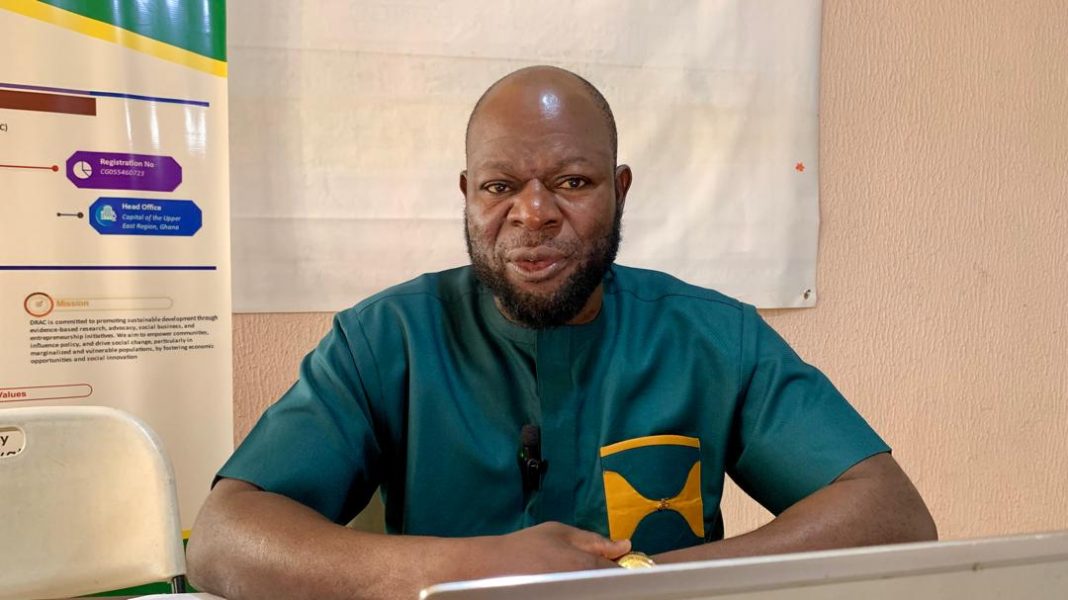The Executive Director of the Development Research and Advocacy Centre (DRAC), Jonathan Adabre, is calling on the government to include persons affected by Neglected Tropical Diseases (NTDs) in national social protection schemes such as the Livelihood Empowerment Against Poverty (LEAP) programme and the National Health Insurance Scheme (NHIS).
Speaking in a documentary titled “The curse that wasn’t: Unmasking the myths behind elephantiasis in Upper East region”, produced by A1 Radio’s Joshua Asaah, Mr. Adabre noted that although there are 21 recognized NTDs globally, Ghana currently records 14 of them, with the Upper East Region bearing the burden of at least three major diseases — elephantiasis, leprosy, and yaws.
He said many affected persons in the region suffer severe stigma, discrimination, and permanent disability, conditions that render them unable to engage in productive livelihood activities.
“These are people who must necessarily be targeted and supported. How do we say we have a national programme to fight poverty, and yet we exclude people living with such incapacitating conditions?” Mr. Adabre questioned. “They should have been automatic beneficiaries under LEAP,” he added.
He explained that DRAC is currently engaging with District Assemblies, the Department of Community Development and Social Welfare, and the National Health Insurance Authority (NHIA) to identify and enroll affected persons in the two government interventions.
Mr. Adabre emphasized that without valid NHIS cards, many NTD patients are unable to access even basic healthcare, including services at local health compounds.
“When they visit a CHPS compound without a valid NHIS card, they cannot be attended to. We are therefore working with the NHIA to design a programme to reach out to these populations, register them, and renew expired cards,” he said.
The ongoing intervention by DRAC, supported by the Anesvad Foundation, covers 40 communities across the Upper East Region. The initiative, which began in 2023, is now in its second phase (2025–2027) and focuses on livelihood support, hygiene promotion, and community sensitization to reduce stigma and improve the quality of life for affected persons.
Activities under the programme include borehole construction, basket weaving and soap-making training for women, and the development of community action plans aimed at preventing the spread of NTDs. Mr. Adabre, however, identified inadequate funding, deep-seated myths, and low public awareness as major barriers to eliminating skin-related NTDs in Ghana.
“These diseases are neglected not only by policymakers but also by the media and society at large. Funding for awareness creation, case detection, and treatment remains woefully inadequate,” he lamented.
“People still believe elephantiasis or leprosy results from curses or witchcraft, not mosquito bites or bacteria. Such misconceptions make prevention difficult.”
He also called for stronger collaboration between the Ghana Health Service, local authorities, NGOs, traditional leaders, and the media to intensify education and fight stigma.
“These are not contagious diseases. You can’t get elephantiasis from touching or sleeping beside someone who has it,” he stressed. “They are our brothers and sisters, and they deserve care, inclusion, and dignity.”
Source: A1Radioonline.com|101.1Mhz|Joshua Asaah|Bolgatanga


